The world has always been divided into good people and evil people, and it is these evil people who find a certain kind of sick happiness and twisted satisfaction in hurting others and causing them pain. Let’s talk about what they use as psychological tricks to manipulate people.
However, hurting someone does not always have to be physical, you know? You can use many psychological tricks to manipulate people, and hurt them.
Evil people most of the time, don’t have a reason for hurting others; they do it because they LIKE doing it and because they get a strange kick out of it.
You might be the nicest person on the face of the Earth, but if they have their eye on you, they can go to any lengths to hurt you, and destroy and your life. It’s just how they are built.
Let’s find out some of the worst psychological tricks to manipulate people.
Related: 16 Signs You Are Dealing With An Evil Person
5 Sinister Psychological Tricks To Manipulate People
1. Distortion Of Consequences.
Distortion of consequences is a psychological mechanism with the help of which a toxic person tries to undermine and minimize the impact of something they did.
They will distort the fallout of their actions in such a way, that you will start believing that every screwed-up thing they did is logical and justified, and it’s you who is the problem, not them.
This is one of the most favorite dark psychology tricks of narcissists and sociopaths because they are always looking to manipulate others to fulfill their shady and toxic motives.
They will manipulate the consequences of their actions in such a way, you will continue to feel beaten down and broken, and they will pretend as if you are just overreacting and making a mountain out of a molehill.
2. Moral Justification.
Toxic people will always have a hundred reasons up their sleeves for justifying their toxic and disturbing actions, and one of them is their most powerful weapon, which moral justification.
Moral justification is their trump card and their most coveted weapon, whenever they want to hurt others, without letting the other person see their true colors.
Moral justification is when someone attaches a noble reason behind their actions, no matter how twisted and toxic they might be. They will try to convince you that what they are doing is right, because they have your “best interests” at heart, and it’s the “right thing to do”.
Are they controlling everything about your life? It’s because they love you and care about you. Did they forbid you from going out with your friends? It’s because they think that your friends, who you have known for years are not your real friends, and are just taking advantage of you.
Evil and toxic people will keep on hurting you, but will always have a moral justification ready for explaining their hurtful and devious actions. And if you try to call them out on this, they will immediately manipulate the situation, and make you out to be the ungrateful and heinous person, while portraying themselves as angels.
Related: 9 Types of Toxic People That Will Rob You Of Your Happiness
3. Guilt Projection.
Projection of guilt is one of the most common psychological tricks to manipulate people when they really want to hurt others. Guilt projection is when they try to justify their actions by holding someone else responsible for them; if they did something wrong, it’s because they were “pushed” into doing that.
For example, if they are physically abusive or violent towards you, they will never admit that they are the one who is abusive. Rather, they will try to justify their actions by saying you made them angry and you pushed them over the edge.
Never expect a toxic person to admit their mistakes, because they will always find some excuse or the other, to make it look like you are the culprit and they, the victim. But the interesting thing about all this is that deep, down inside they know who they are as an individual, but they are too cowardly and weak to acknowledge it.
That’s why they project their guilt, wrongdoings, and toxicity on other people, just to hurt them and remain in delusion.
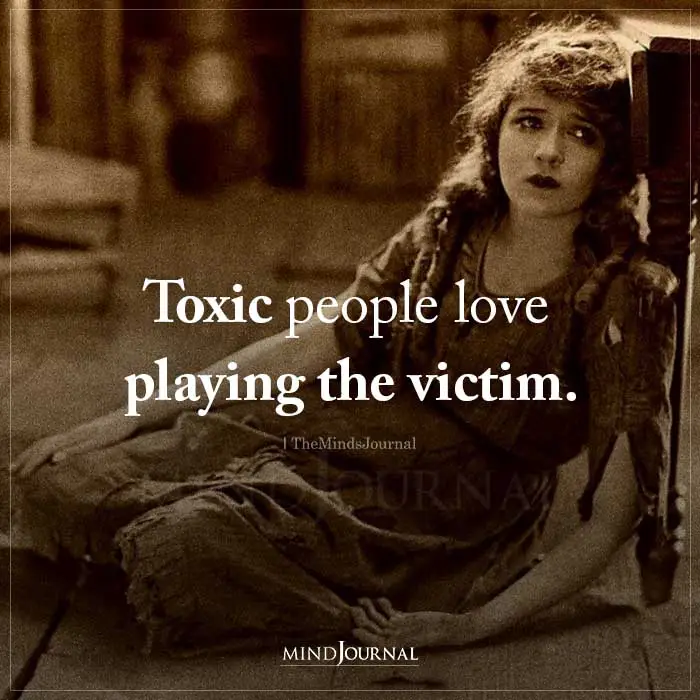
4. Displacement Of Responsibility.
When it comes to the displacement of responsibility, evil people can really make sure that they are never held accountable for their actions, no matter how horrible they might be.
Whenever they are called out on their actions, they are quick to put the blame on someone else by saying things like, “I did what I was asked to do!” or “I never wanted to do this, I was ordered to!”. Get the gist?
By displacing their responsibility, they quickly diffuse and minimize the part they played in it, and brainwash others to see them as the epitome of innocence.
They have done the heinous deed, they are the ones who got their hands dirty, and they are the ones who were caught red-handed, but when it comes to taking responsibility, they immediately pin it on someone else and portray themselves as the hapless victim who simply did what they were “forced” to do.
This is one of the worst kinds of psychological tricks to manipulate people.
5. Dehumanization And Depersonalization.
Dehumanization and depersonalization are two of the worst and most horrible dark psychology tricks to exist. These two psychological mechanisms’ main motive is to treat and regard someone as not human, which makes it easy for the wrongdoer to inflict pain on them.
Dehumanization is when evil people do not consider their victims as human and go on to torment them because they firmly believe that the victim is not deserving of their respect, and hence can be hurt over and over again.
Toxic people justify their violence against such victims by convincing themselves that what they are doing is not just right, but necessary. Case in point, Hitler and his hatred towards Jews, which ultimately led to the deadly Holocaust.
Depersonalization is when you feel completely disconnected from a fellow human being, and regard them as someone who doesn’t have any feelings, emotions, and thoughts.
Not only are they regarded as non-human, but they are also deprived of their human and moral rights; they are simply regarded as an object to be played and tormented with, as per the culprit’s wishes.
Dehumanization and depersonalization are probably two of the most horrible and worst mind manipulation tricks because the moment you stop seeing someone as a living, breathing, and feeling individual and use that as an excuse to cause them pain, you are too far gone from the threshold of humanity.
Related: How You Treat Others Will Always Come Back to You
So as you can see, the need to hurt others and cause pain to them is most of the time because of cognitive processes and psychological mechanisms.
But that can never discount the fact that hurting others is horrible and wrong in every way, no matter what the reason might be.
Have you ever on the other side of these mind manipulation tricks? Have you ever fallen victim to these dark psychology tricks? Let us know your thoughts on this in the comments down below!
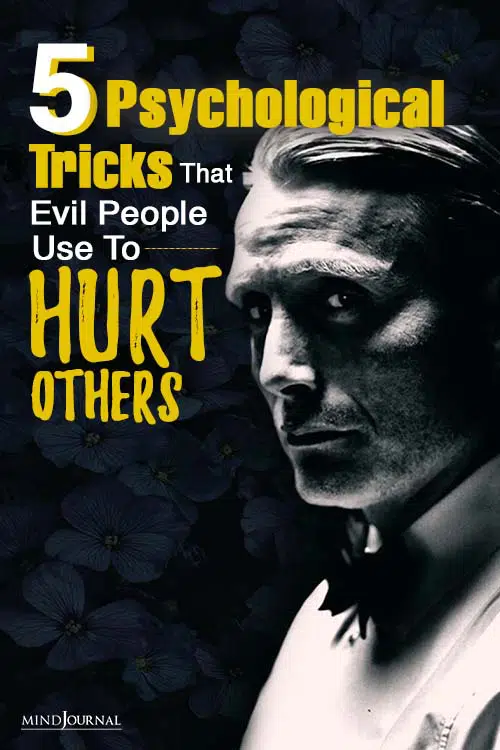
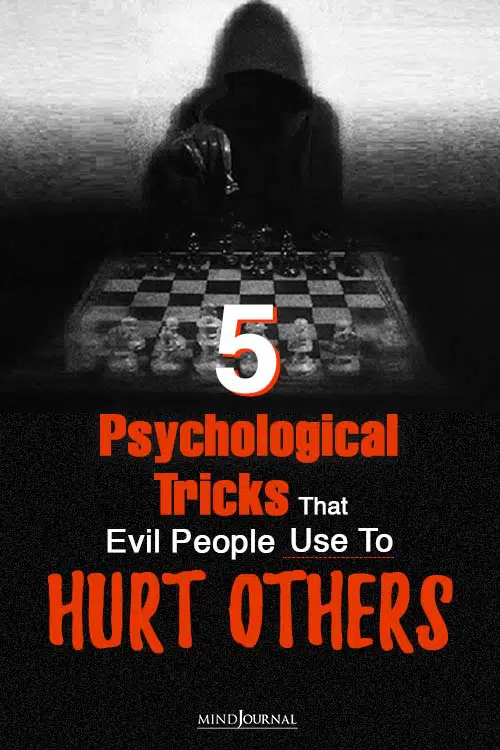
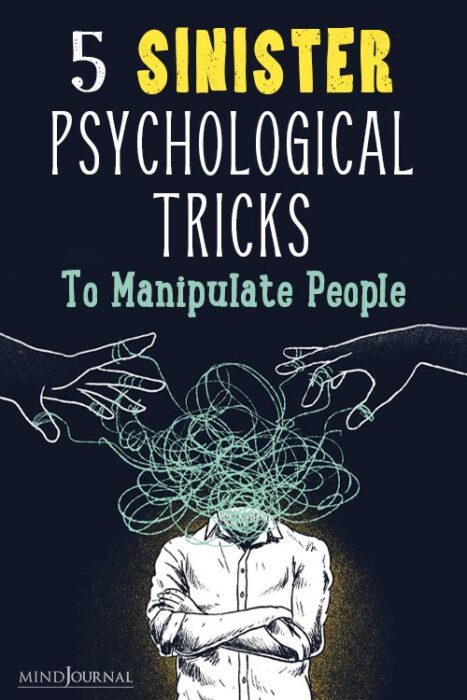
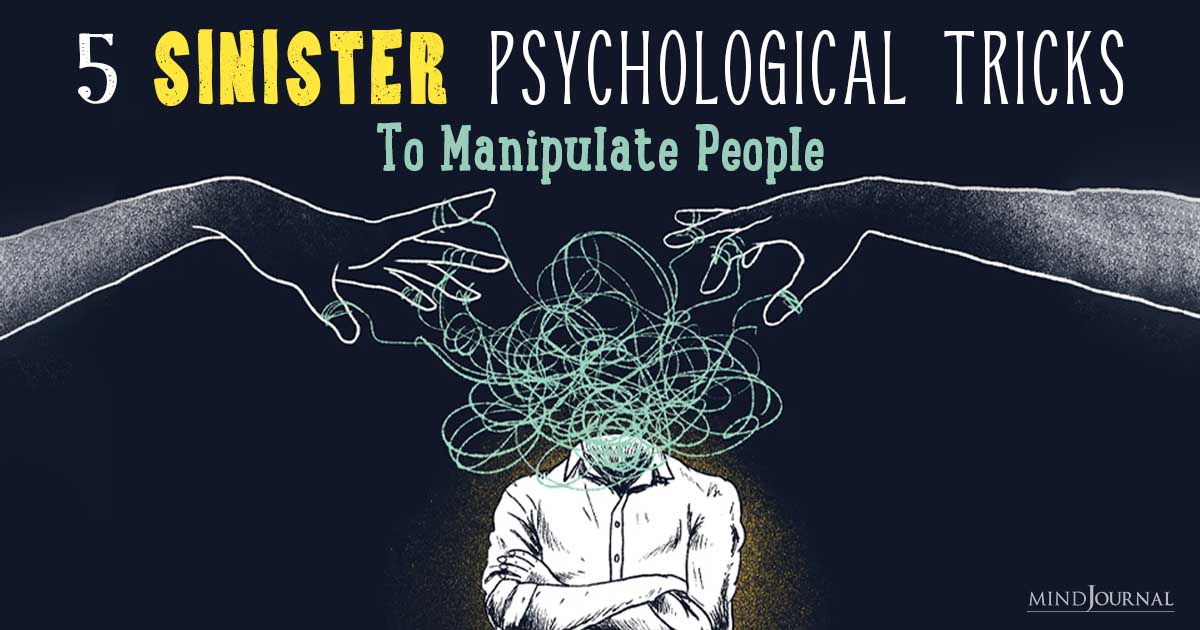







Leave a Reply
You must be logged in to post a comment.